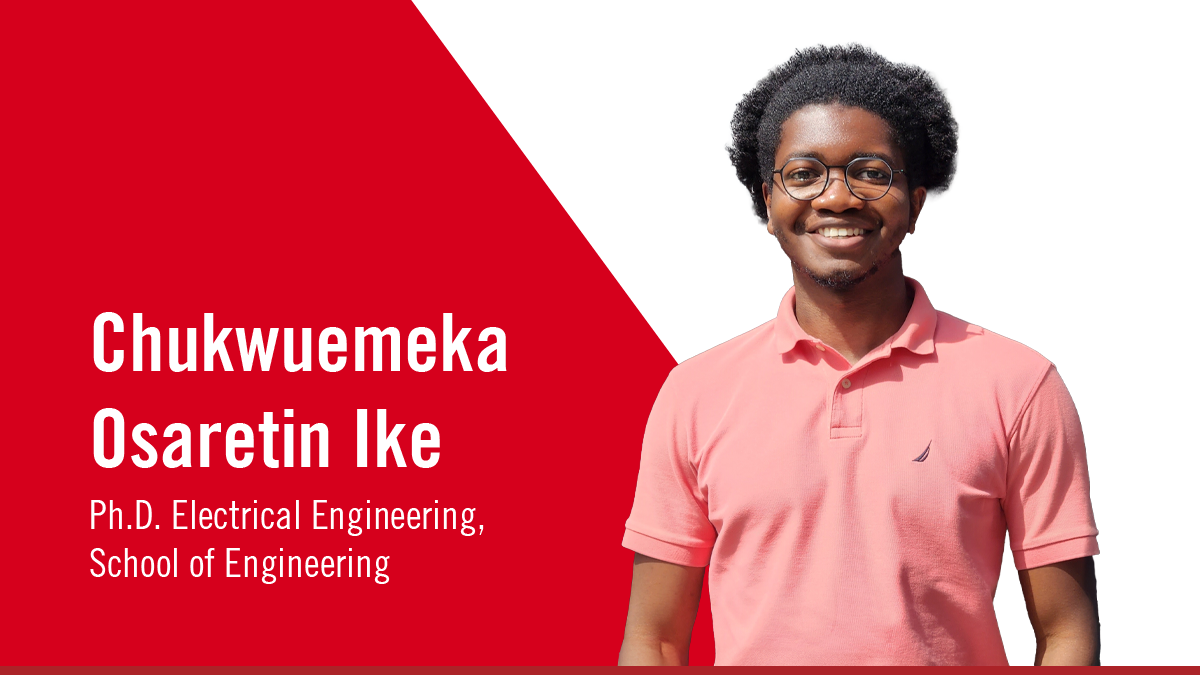“Pursuing a Ph.D. was perhaps the most difficult thing I’ve done so far…I’m proud that I made it through.”
For Chukwuemeka “CK” Osaretin Ike ’25, Ph.D., Commencement represents more than an academic achievement — it’s a hard-earned milestone that reflects years of perseverance, sacrifice, and the determination to chase bold ideas across continents.
Originally from Lagos, Nigeria, CK found a home for his passion for engineering at Rensselaer Polytechnic Institute, where he turned early challenges into opportunities for growth and discovery.
Why did you choose RPI?
I was drawn to RPI by the strength and applied nature of its Robotics program. At the time, the Center for Automation Technologies and Systems gave me the unique opportunity not only to study robots, but also to work with them in industrial environments. Those projects were some of the most rewarding engineering experiences I’ve ever had.
What are you most proud of from your time at RPI?
Honestly, surviving. Pursuing a Ph.D. was perhaps the most difficult thing I’ve done so far. I’m incredibly grateful and proud that I made it through. I also got to build some really cool software projects along the way that I’m really proud of.
How did RPI shape who you are today?
RPI taught me that I can do difficult things. I was challenged from the first day I got here, and as many times as I got knocked down or stumbled, I kept going. I believe I’ve grown tremendously as an engineer simply because I got to go here, and I’m now learning to apply that tenacity in other aspects of my life as well.
What challenges did you face at RPI, and how did you overcome them?
I had a very difficult first semester. The transition from undergrad to RPI’s rigorous program without my existing support system quickly took its toll. I’m immensely grateful to my advisor, Dr. Julius, whose guidance gave me the space to struggle, grow, and ultimately overcome. I learned to ask for help as often as I needed it and to be deliberate in the way I approached learning — and it has made a huge difference in how I approach new concepts.
Can you tell us about your research?
Our lives today look nothing like they did a century ago, and our circadian system is probably the most disrupted it has ever been. My research focuses on using the data we can get from wearable devices in a way that’s useful for controlling the circadian system. If we’re able to do this control, the numerous people who work nights or frequently travel across time zones would benefit in many ways, from better sleep and recovery to reduced error rates and a reduction in long-term health risks.
What’s next for you now that you completed your Ph.D.?
I’m currently working as a research scientist at Meta, using machine learning to tackle complex problems in social networking apps. It’s a great opportunity to apply what I’ve learned in new and exciting ways.
What’s something people would be surprised to learn about you?
I’ve never had an energy drink. As much as I could have used one — especially at RPI — I’ve somehow managed to abstain, and now I’m curious how long I can keep it up.


